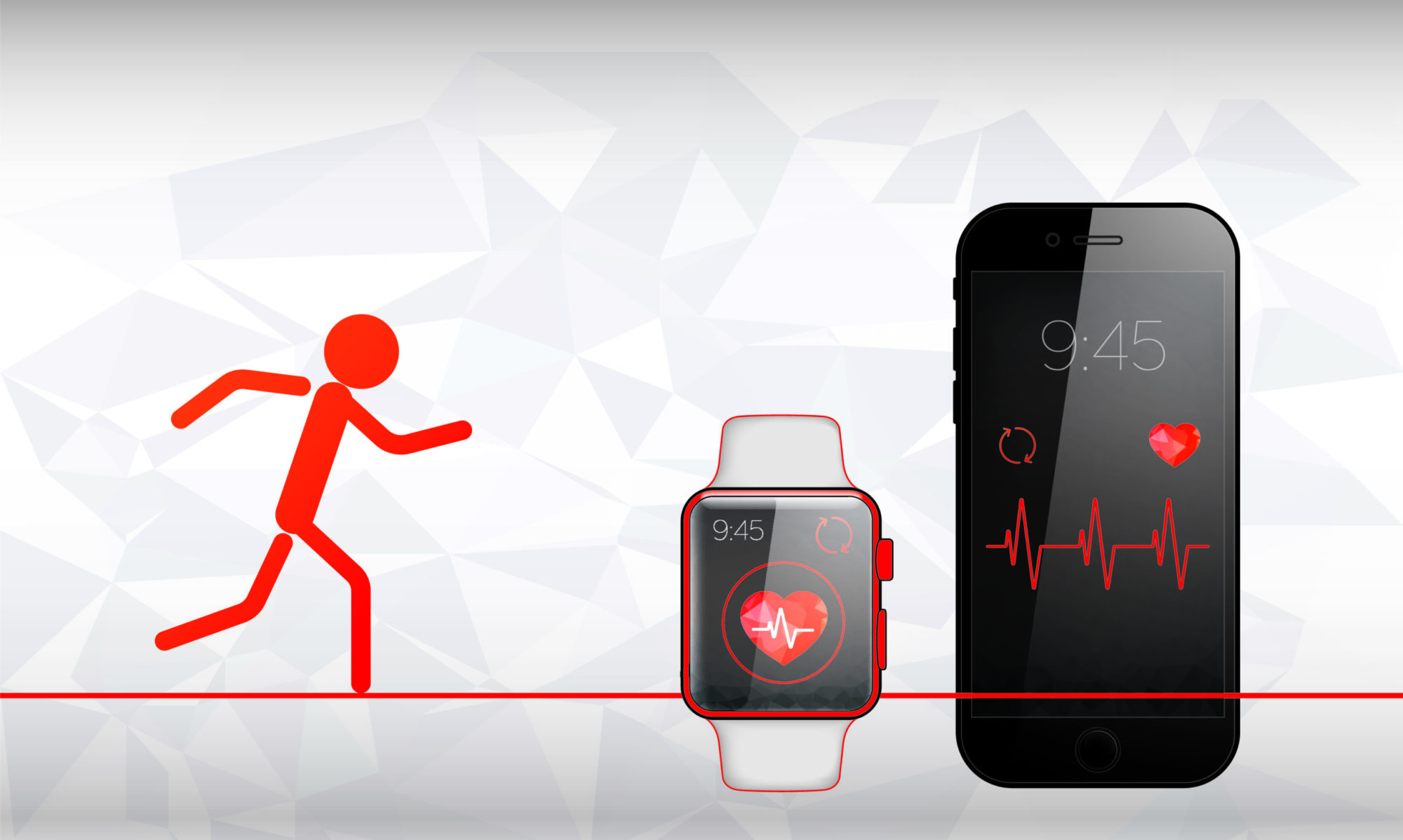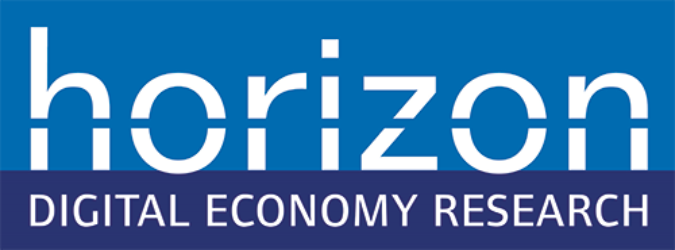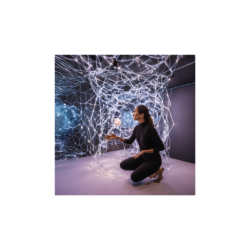As part of the Soma Co-Designed Technology for Wellbeing project, we have held two co-design workshops to explore how embodied, sensory design can support the mental wellbeing of neurodivergent individuals — particularly adults with ADHD. Using the theme of Stillness and Motion, participants engaged in a series of somatic and creative design activities rooted in the Soma Design approach.
The first workshop opened with a guided body scan exercise designed to help participants tune into their physical and emotional states through focusing on their bodily sensations. This set the stage for a design challenge focused on creating objects that engage with the concepts of stillness and motion as tools to assist with focus, emotional regulation, sensory relief or other aspects of wellbeing. Working in small groups and using a range of electronic devices (we are terming somatronics), textiles, malleable materials, sensory objects and devices designed to induce physical sensations) SOMA bits — tactile, malleable materials — participants developed a wide range of design ideas. Some groups focused deeply on a single design, while others generated multiple ideas. The day ended with a reflective show-and-tell where each group discussed their process and the sensory qualities of their creations.
Between the two sessions, the research team grouped participants’ ideas into key themes — whole body soothing sensations, vibration and other sensations focused on hands, wrists and feet, and Virtual Reality (VR). These categories were presented back at the start of the second workshop, allowing participants to build on their previous work with a clearer structure and focus. The team built upon the initial ideas to allow for them to be developed further in the second workshop.
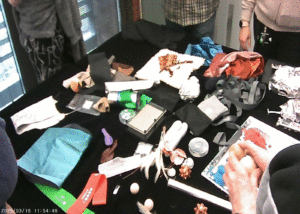
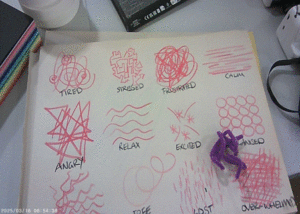
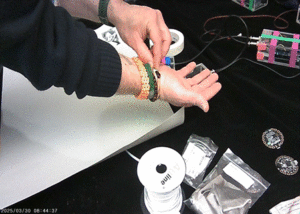
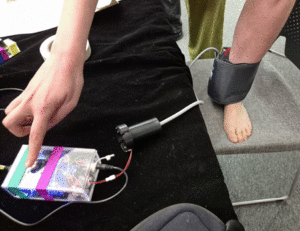
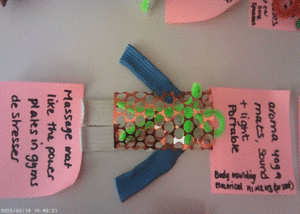
Together, the two workshops created a rich space for exploring sensory experiences and design from a neurodivergent perspective. The outcomes demonstrated how embodied, co-designed approaches can surface nuanced insights into wellbeing and self-regulation through creative and collaborative exploration.
As part of a Mixed Reality Lab, University of Nottingham away day, ran a short version of our workshop activities. MRL staff and students were able to experience the range of bodily sensations induced by physical objects and electronic devices built for the full workshops. We asked them to discuss and evaluate the design and reflection tools. The intention was to publicise the work and also to gather useful feedback to help plan our next workshops.
As part of the Nottingham Tech for Good Festival this month, Pat Brundell will be giving a talk on the motivation for the project and what has emerged from the first workshops.
